There are few known filmmakers from the North and even fewer female filmmakers. This small pool of moviemakers means less mainstream representation on screen for Northern people. Nadine Ibrahim, a Kaduna-born filmmaker, is committed to changing that with Beyond The Veil, one of the few Nollywood shows that casts an exciting gaze on the experiences of Northern women.
The series is centered around five women. Their friendship stands as one of the main themes of the series. The exploration of female friendships, when done well, can quickly amass a cult following. The Issa Rae-led Insecure and Tracy Oliver’s Harlem are a testament to this. These two shows also served as references for Nadine when creating Beyond The Veil.
Every creator has that moment when they realise their work is doing something in the world. For Nadine, it was when the show blazed through the ranks, carving out the number one spot for itself. Snippets from the show, which debuted its first season in March 2023, quickly went viral and she witnessed real-time reactions to the show which went a long way in encouraging her.
Now back for a second season on Prime Video, the show takes a deeper dive into the characters as it takes them on a thrilling journey that presents new sides to their unique challenges. Shortly after the premiere on June 7, I had an exclusive conversation with creator-director Nadine Ibrahim. During our virtual conversation, we spoke about the characters’ directions in this sophomore season, discussed some of the creative decisions, and shed light on some burning questions. The conversation ended with a reflection on the show’s impact and the potential for a third season.
This interview has been edited for length and clarity.
In funding Beyond The Veil were there any particular strategies or partnerships that helped bring your vision to life, as you sought to bring a rarely-seen Nigerian side to the screen?
Both seasons were funded by myself and my partners, Dunes. However, we heavily relied on partnerships with the Abuja community and local businesses. Growing up here, I was able to meet a lot of people through my friends and school. So when it came to making the show, I had to reach out to my community, leveraging personal relationships.
When did you first get informed about the second season greenlight?
Shortly after season one. We heard that Prime was interested in licensing a second season. But because of the structural changes that were happening within that organisation, a lot of things were hushed at the time. So we had to really work behind the scenes and very privately to get it done. We recently just got the go-ahead to start promoting the show.
I think a lot of people love this show because it takes you to another environment, and another culture and immerses you in Abuja which has a certain feel. Abuja to Beyond The Veil is what New York is to Sex and the City. I am interested in how you and the team were able to achieve this.
I think from the onset, it was very important for us to create that feel because we were trying to show a different narrative and different visuals from the North. And right from the scripting, we knew that there were certain elements that we wanted to showcase visually. So, right from the inception, we knew that this was something we were going to be intentional about.
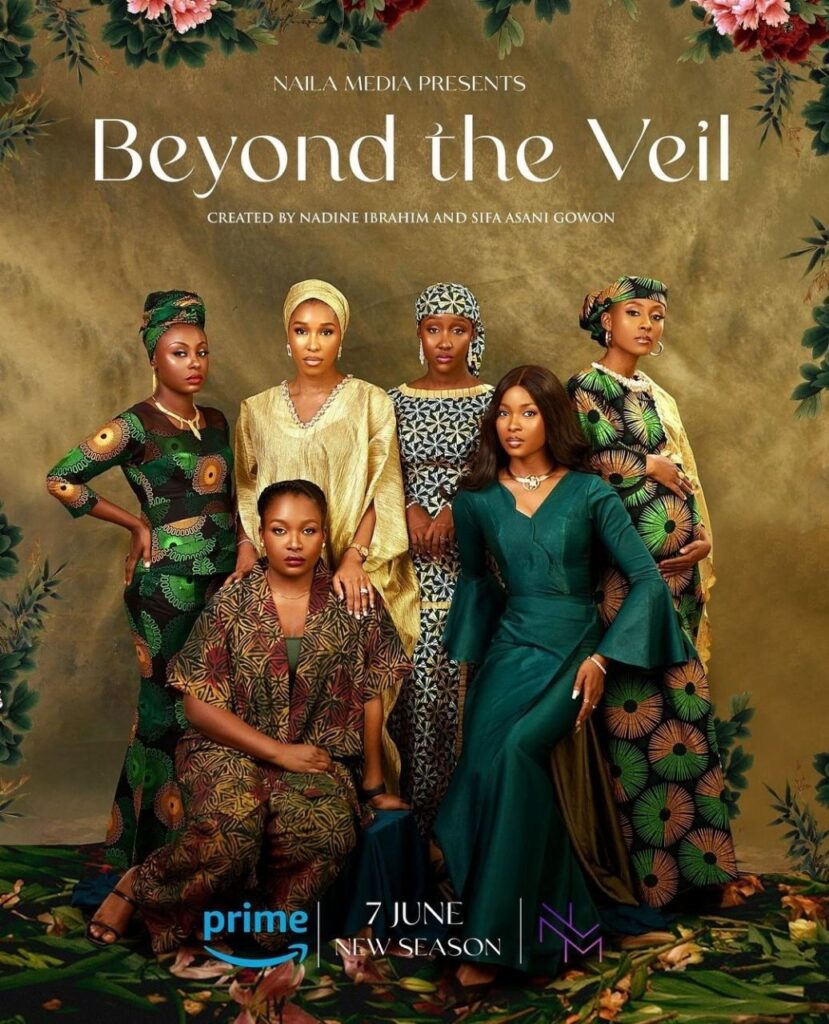
The casting for the show evokes interest. You have created a worthy ensemble here from Jemima Osunde to Norah Igho to David Adoga and the other equally amazing actors. How did you go about this casting process?
When we started casting, it was important for me to cast for the character and not the actor. During the audition process, we were looking for people that I saw the characters in, as opposed to looking for actors to just play the role for publicity reasons. We were also looking for people who could pass off as Northern-looking as much as possible. So, the Southern actors that we did get on board, I would say, have at least little features that we could tweak to make them look Northern.
Did the show have a dialect coach to support the non-Hausa speakers?
The authenticity of the Hausa speaking was key for me. When I watch Southern-produced shows where they try to represent the North, I get frustrated when I see them butcher the Hausa pronunciations. We had people within the cast that were Hausa and could speak Hausa. I speak Hausa as well so it wasn’t too hard to try and train them to say a particular dialogue. But also at some point, when I noticed that the actors were struggling, we immediately changed the Hausa because I would rather just have them speak English as opposed to butchering the Hausa. We are in the North depicting Northern characters so the Hausa slangs and words that Jemima or David could say properly, we would ok it.
Now, let’s get a bit more into the series. Season 1 ended with the girls’ big fight. I noticed that there wasn’t a resolution scene in season 2. What was the creative decision behind keeping the resolution off-screen?
They all had pretty tough things going on. So, it was one of those things where it’s, if you’re truly friends as you say you are, you would drop all grudges and be there for each other. When we were writing the script, we said, at this moment, they all knew they needed each other. They grew up together. They’re more or less sisters. So we just decided to focus more on what was going on in their lives and try to see how each of them could renew that sisterhood.
There was some kind of awkwardness to it.
Exactly. So we didn’t jump straight into, you know, “We all love each other and we’re friends”. It’s like we’re here for each other, even though we know we have differences. And you have those situations in real life where there are a lot of unresolved conflicts that you kind of just brush over for the sake of peace.
But sometimes those things we bury tend to pop up here and there. Do you think it will be the same for them because it was kind of a big fight?
I guess we have to wait and see.
Still on the girls, who are all going through changes. For Naima, she appeared to have a positive experience with her first therapist but now she’s in a different setting. Could you tell us what led to her transition from individual therapy to group therapy?
We thought it would be interesting to explore group therapy this season because we wanted to showcase different people going through different things as well. And it was also important for her to see that she wasn’t alone in her struggle.
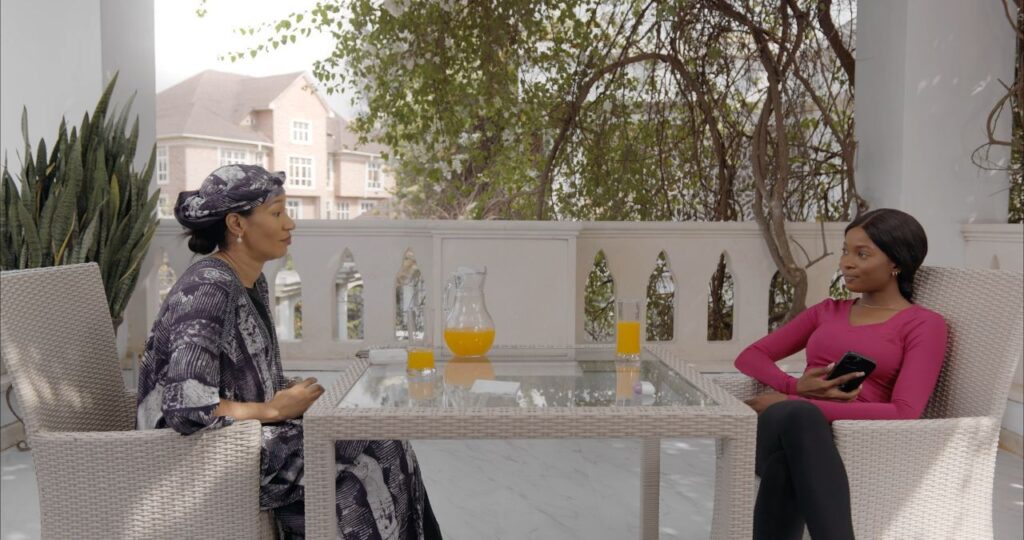
I really enjoyed watching Naima this season. There is another angle in her story: the inter-religious relationship. I noticed her mum is called Jemima, which is a Christian name. So, I am assuming she was a Christian at some point in her life. I noted that her experience with Christian-Muslim marriages was not broached. Was there a reason we didn’t dive into that part of her life seeing as her daughter was towing the same path with the Christian-Muslim marriage?
This is something that has just come up for me this season. So Jemima, for the writers and myself, is because we know Jemimas in the North. We actually wrote her as a Muslim character. It’s only yesterday that someone mentioned to me that Jemima is actually a Christian name. And I was surprised. But for us, it was just the name.
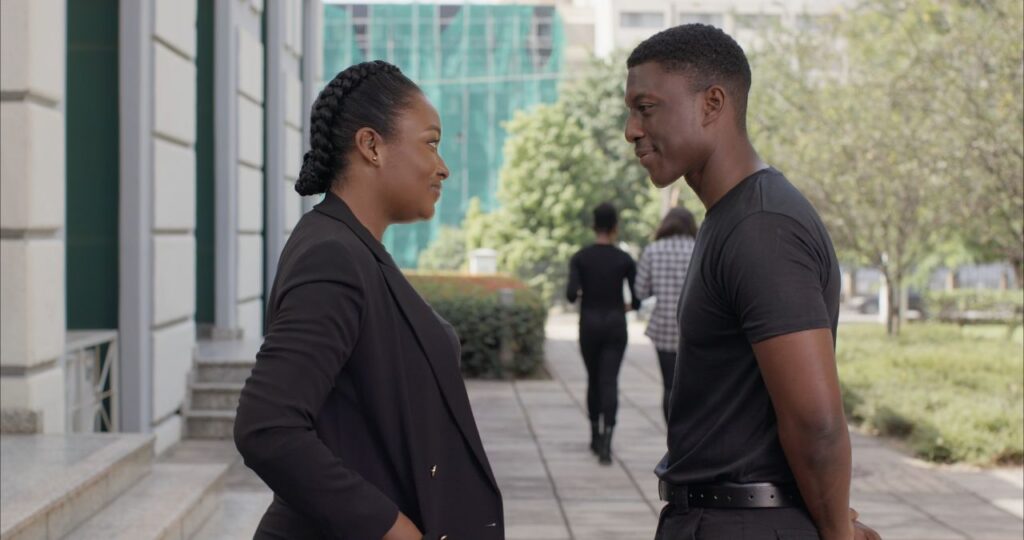
Well, it’s a good thing the next character I would like to talk about has a Muslim name. The character Zainab is quite intriguing. She is a guarded woman with walls high up but this season we see her become a bit vulnerable with Tariq and even in her decision to chase after Kassim in the season finale. Can you talk about this decision to make her slightly wear her heart on her sleeves?
It was important for us to go in a slightly different direction with Zizi this season because we were trying to experience the way people deal with grief. And I think it’s one of those things where grief makes you do crazy things. Nobody really knows how they’re going to act when grief hits. This is somebody that she looked to for everything. So not having him in her life for the first time, for her, it was her looking for a relationship with her mother, her looking for love within, her relationship with Kassim and not understanding where she was going and Tariq coming in at the right time. So it’s almost as if Tariq was there to fill the gap that Bappa left.
Kind of like she needed a life jacket to float. Kassim once made her feel like she was floating. Kassim and Zainab really gave me butterflies and I was so sad when they broke up. He is engaged to Maryam now but the finale reignited my hope for them. Do you think there is still a future for them or are our hearts going to stay broken?
That love triangle is one I think the writers are having the most fun with because this is what a series does. You meet these two people who are perfect for each other, and then, of course, you have to throw in the chaos just to frustrate everyone. We played around with the idea of them not really being for each other, but then, you know, having that loyal fan base wanting them to be together. So, yeah, again, it’s one of those things that we’re very excited to explore in the possible future.
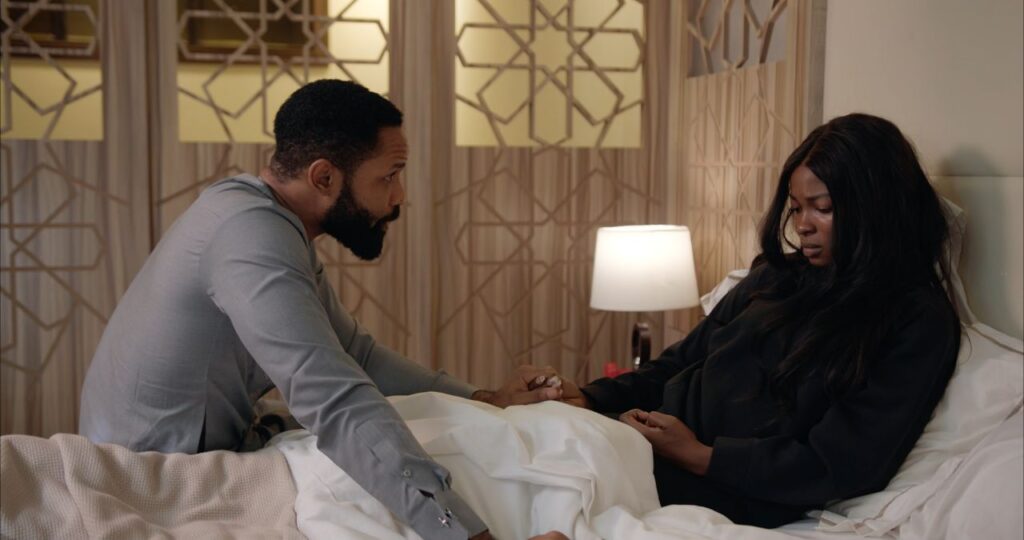
This season, Kassim is a bit different. He is trying his hardest to fulfill his mother’s wishes and he is dedicated to his job which wasn’t the case in the last season. Can you talk a bit about his character dynamic this season?
We see in this season, there’s a lot of maturity in Kassim’s character. In season one, he was just a playboy, hanging around his mother’s house, only doing what he needed to do at that moment. But with season two, there’s this maturity. His family is falling apart and he needs to be there for them. And with Maryam he feels obligated to keep the relationship as his mother got him the job with Maryam’s father. So there is a more serious thing at play here. He had a lot more riding on his relationship with Maryam as opposed to it just being him trying to get with her, but also that it was to grow the family business. It was to grow him as a person.
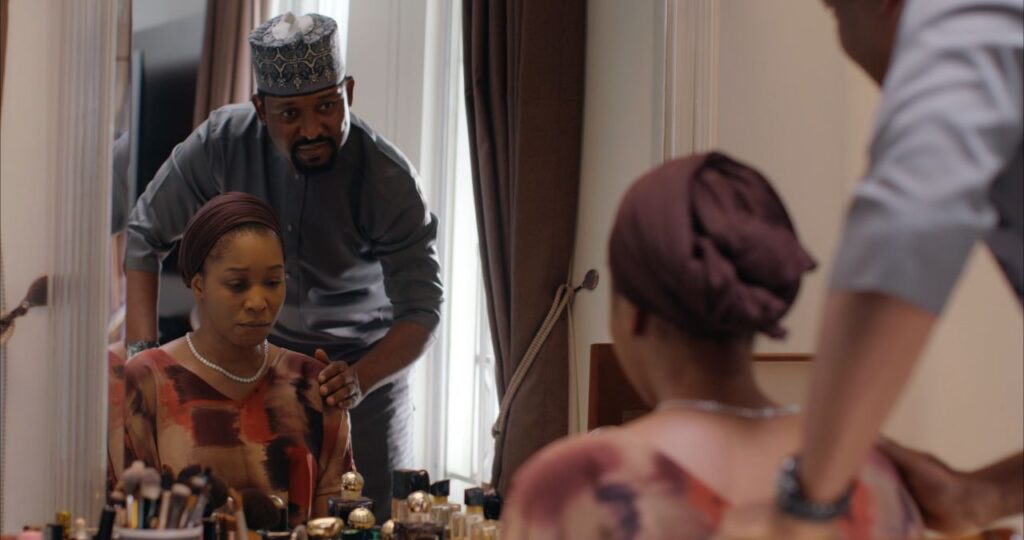
On the subject of character growth, we see that in Baddriyah this season, especially through her domestic violence experience. It’s quite difficult handling the theme of domestic violence but what I especially loved about what you did with the show is having her family back her. It seemed important to you that she had this community which is not often the case in our society. Why was it important to have Baddriyah’s family on her side?
With Beyond The Veil, I knew that the characters and their struggles would be universal. This is what these people go through psychologically and mentally when it comes to these specific issues that we’re trying to explore. So, if somebody going through domestic violence watches this show, they need to know that they can leave and that they’re not alone.
On social media right now the comments are “She asked for it. Didn’t she see the red flags?”
It was important to show that as much as you think she’s stupid for doing what she did, it doesn’t mean you shouldn’t feel sorry for her. People are defending Sadiq’s behaviour and saying such things to the woman going through this. It’s one of those things where it’s putting up a mirror at society to say look at this particular subject for what it is.
The conversations happening around the theme means your job is done. Circling back to character progression. Baddriyah and Zainab have more sisterly scenes this season. Baddriyah has had a difficult relationship with Zainab but during the heat of her issues, she ran to her. Would we be seeing more of their relationship in the coming seasons?
It was one of those things where everything happened at the right time in order for them to be there for each other. There was a moment when Zizi came back and Baddie tried to be her snarky self again and very quickly, Zizi had to check her, and she apologised. So we still had those moments where they are still the same people but let’s revisit these conversations and these sensitivities.
It was refreshing to see this change in their relationship. Speaking of another major change, which we all noticed in the casting. Aisha Mohammed who played Hajiya Bilqis in season one has been replaced with Temitope Olowoniyan. Could you tell us what affected the casting continuity?
With that character in particular, it was a thing of availability. She had been out of the country, I believe, and we had to shoot. But I think the new actor did really well with the role she was given.
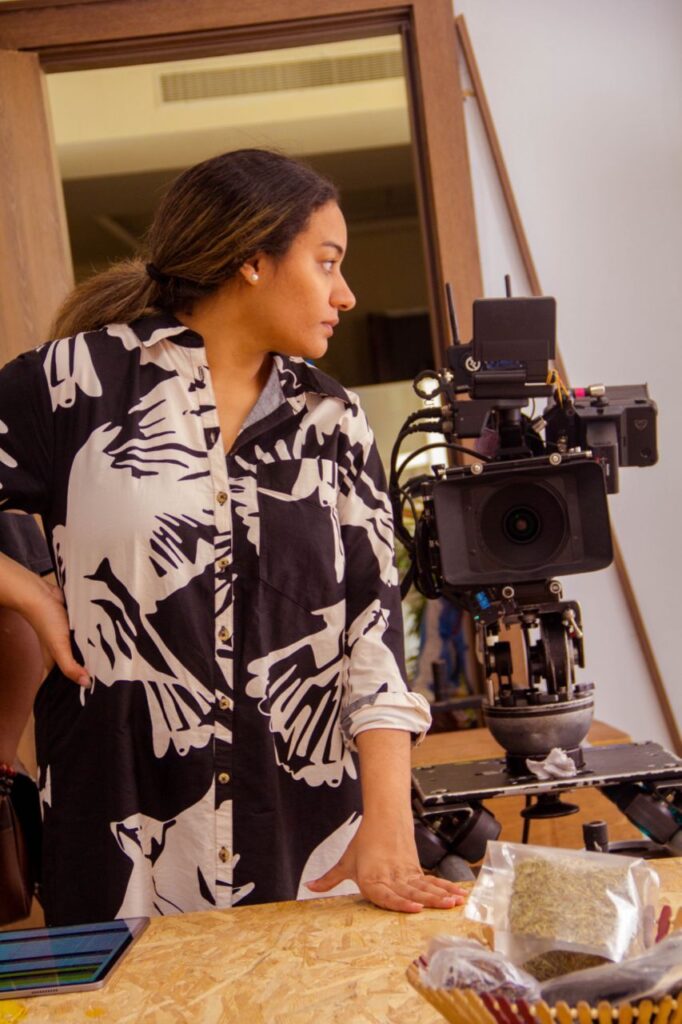
When do you think we would be getting a third season?
Unfortunately, I don’t have an answer for you right now because a lot of moving parts are involved. But I’m hoping soon we’ll get that response.
What are your hopes for Beyond The Veil? What is the one thing you want this show to achieve in the long run?
For the world to see that a show like this can be this successful coming from the North. I think that is what is most important to me. There aren’t that many Northern filmmakers, especially women. I want emerging filmmakers coming from the North to be inspired by this. They should see that they can successfully create shows that represent their culture and where they are from.
Beyond The Veil is currently streaming on Prime Video.
Share your thoughts in the comments section or on our social media accounts.
Keep track of upcoming films and TV shows on your Google calendar.

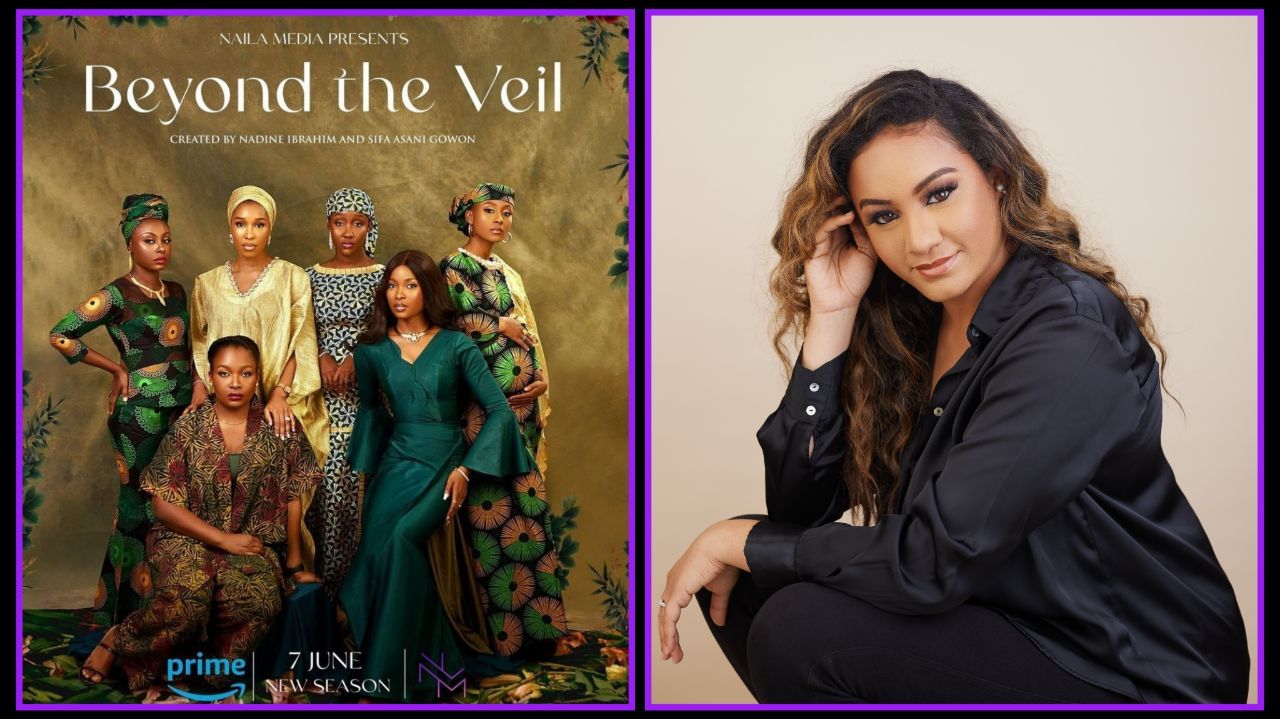
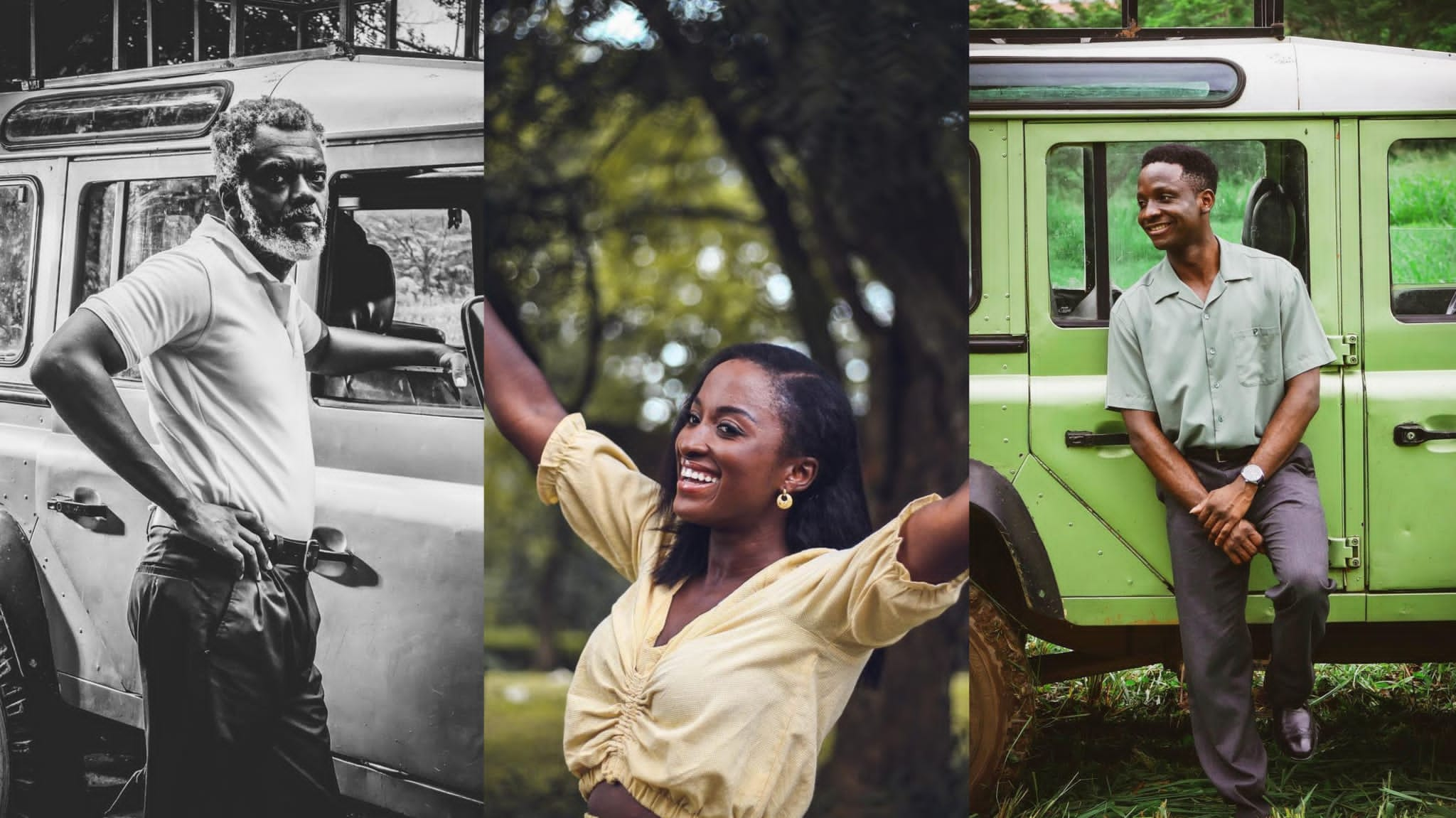
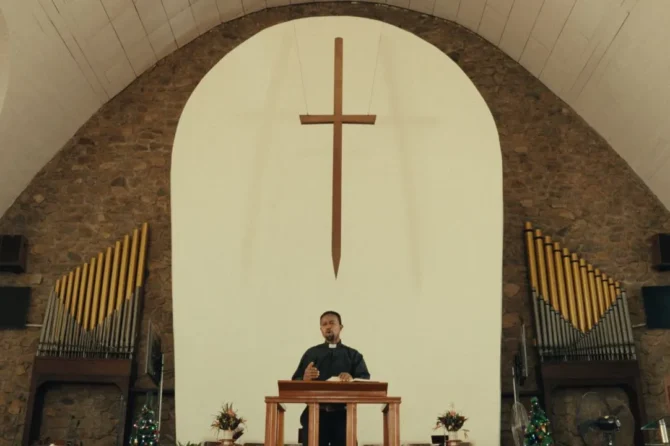

1 Comment